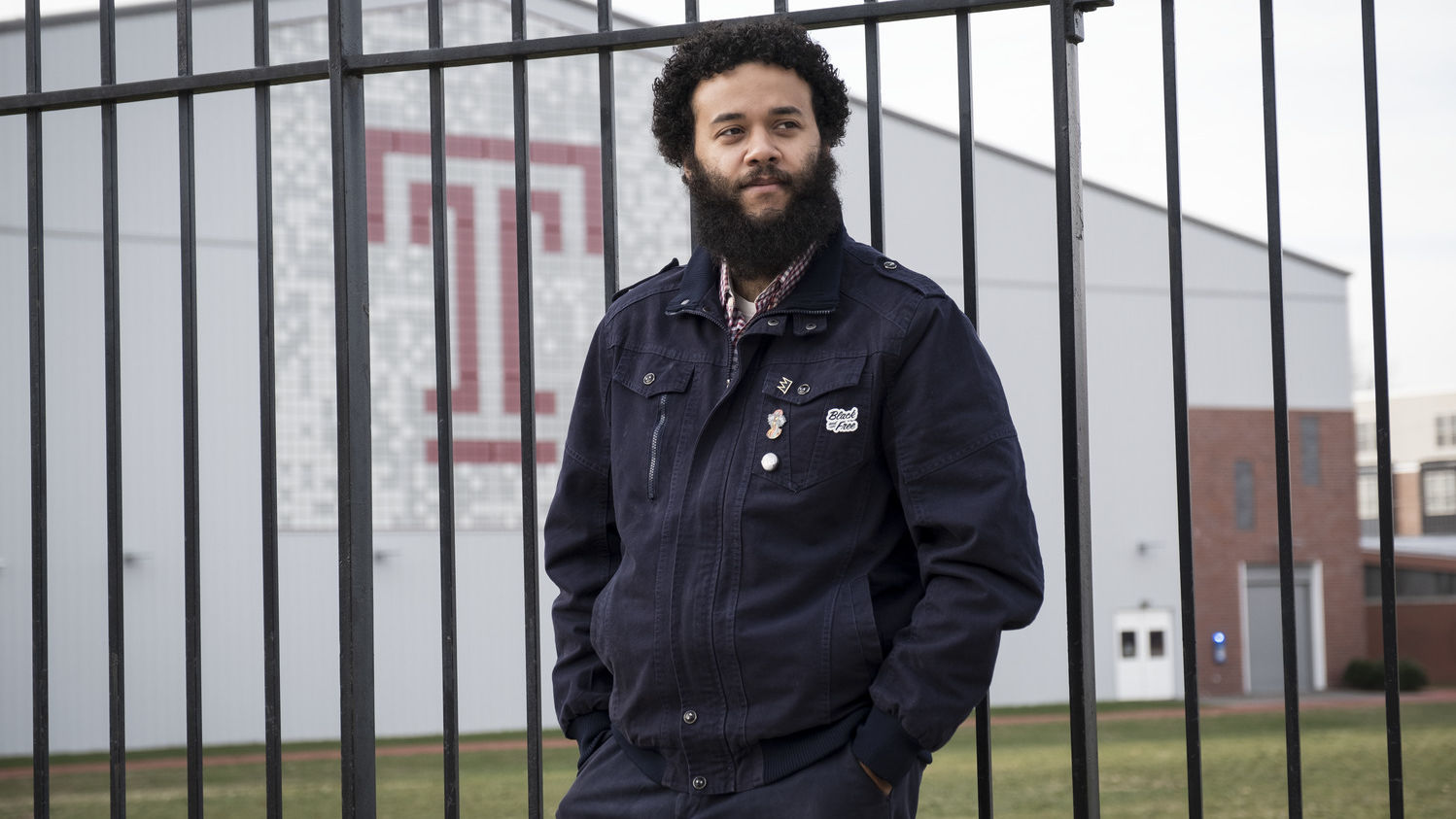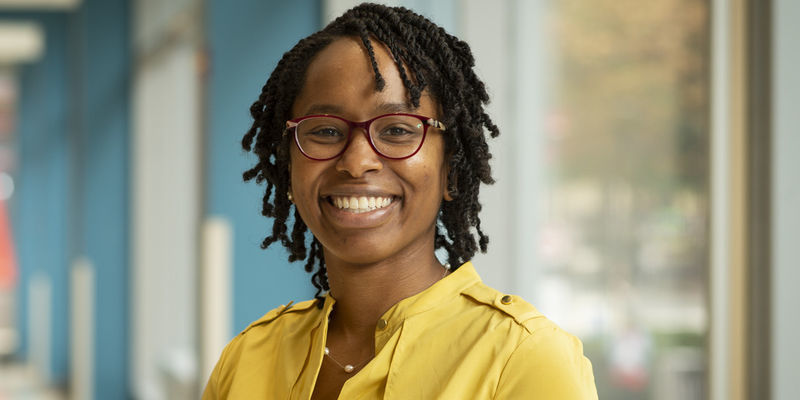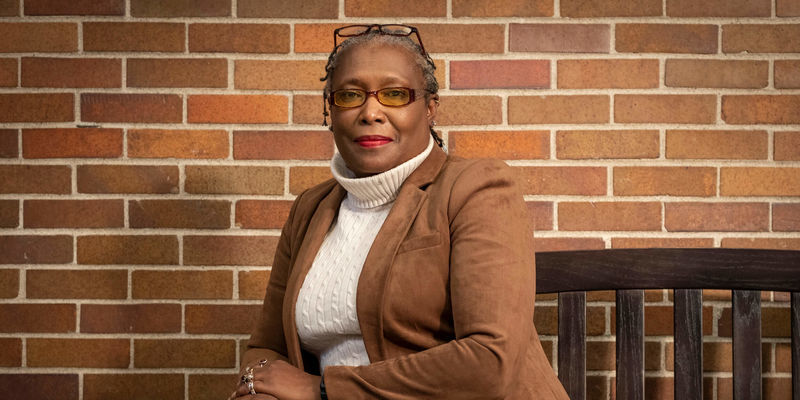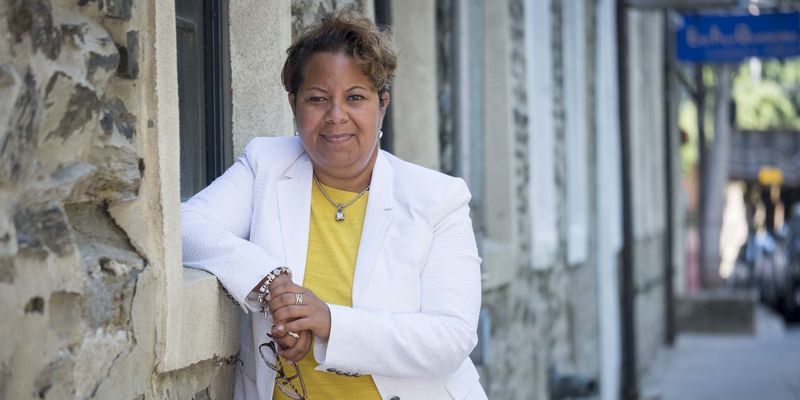The impact of Black athlete activism
Understanding how the protest politics of Black sports stars influences Black public opinion and political action

Nyron N. Crawford is a political psychologist who focuses mostly on Black political behavior and Black public opinion. He is an assistant professor of political science in Temple’s College of Liberal Arts, and his expertise includes race, cities and behavioral public policy. He recently co-authored an article on Black athlete activism in Politico magazine. We spoke with him about his research, the findings that went into the Politico piece and his current projects.
Temple Now: What got you involved in studying Black athlete activism?
Nyron N. Crawford: Black political behavior is understudied. It tends to be relegated to voting— the likelihood of Black Americans to vote for Democrats and the extent to which they hold strong group consciousness or what we call “linked fate.” We wanted to look at a different dimension of Black political behavior and Black public opinion.
TN: Can you provide some background for the October Politico article on Black athlete activism?
NC: There was a call for papers for a journal about celebrity and politics.
My co-authors and I fielded a survey a few years ago about reactions to Colin Kaepernick kneeling during NFL games. We started thinking about Black sport activists specifically, and their influence on Black public opinion. We don’t know much about how these individuals influence the attitudes of actions of Black Americans. And we’ve seen Black celebrity activism across the entertainment industry but less attention has been played to Black athlete activists.
TN: What did you find?
NC: For our first study with Perspectives on Politics, an academic journal, we found that individuals who supported the Colin Kaepernick protest were far more likely to engage in all the political behaviors, including voting, boycotting, petitioning and calling elected officials. Some of the literature around celebrity politics has often concluded that the effects are quite small. Part of what we argue is that Black athlete activists are very different. They have a huge platform.
We extended this in the Politico piece to look at support for LeBron James and what we saw on that data is that Black public opinion is far more favorable for a person like LeBron James then it was for the then Democratic candidate Joe Biden.
TN: Can you talk about your methodology?
NC: We did a survey of Black Americans in several states: Michigan, Pennsylvania, California and a few others. We asked a number of questions with a sample of about 1,300 Black Americans, which is actually quite large because Black Americans tend to be underrepresented in most survey samples.
We really wanted to focus on Black public opinion. We have done three waves of this survey under the Black Voter Project.
TN: Black athlete activism has a long tradition in our country. How is the current movement different?
NC: People are seeing this in real time in a way that they didn’t in the 60s and 70s when the media was not as robust. More athletes are stepping into the fold and engaging in this process, making it more visible. We’re seeing it across sports industries with Bubba Wallace in NASCAR and Megan Rapinoe in the National Women’s Soccer League to name a few.
Simultaneously, we see more visibility around police misconduct. I think Americans have known that it exists, but perhaps never accepted the reality of it. Now they’re seeing footage of the traumatic experiences happening in Black communities at the hands of the police.
Police misconduct or violence against Black people has been the entry point for modern sport stars to engage in protest politics. Unfortunately those incidents, if not remedied, will continue. Black athlete activists will continue to spotlight that because it is the unresolved issue of this generation.
TN: Can you talk about the effect of the double standard against Black athletes?
NC: The fact that some Black athlete activists put their career on the line is a signal to Black Americans about the severity of the issue. You can’t look at the blackballing that occurs and not be concerned about the level of double standard that exists because they’re spotlighting racial inequality. I think that’s a very serious matter that raises the stakes for individuals engaged in this kind of protest.
I think this makes Black Americans suspicious of the state and more likely to listen to what these athletes have to say, particularly when you have the media telling them to shut up and dribble. One of the assumptions is that because these are affluent sports stars that they should not have anything to complain about, that they’re not experiencing the things that they seem to be taking issue with. But many of them come from those communities where poverty and violence is an issue.


